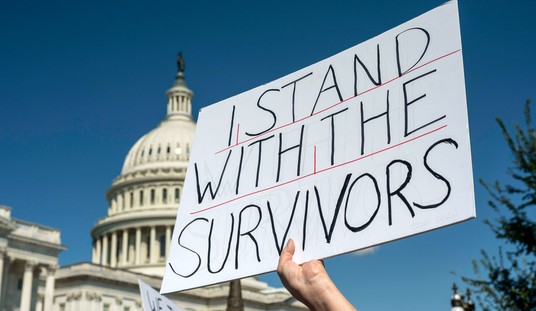Neo-Neocon writes, “Holocaust denial: it’s catching“:
Holocaust denial, always reprehensible, is somehow more understandable in Europeans than in someone such as [Iran’s President Mahmoud Ahmadinejad]. After all, Europe bears more of the guilt for the Holocaust; therefore it stand to reason that Europeans would have more motivation to want to wash their hands of any association with the Holocaust by declaring it a fabrication of those wily and nefarious Jews.
But Holocaust denial has spread to Arab countries, and of course to Iran. The reasons are not completely clear, but it seems to go with the territory of anti-Semitism itself. After all, if one desires to hate Jews and to blame them for all manner of evil, and at the same time one imagines there’s a need to be sympathetic to victims (and to elevate the Palestinians as victims extraordinaire), then the Jews have to be discredited as victims. They must have no sympathy whatsoever in order to become the villains of the piece. And to do that one must deny that the Holocaust ever occurred–so that their re-victimhood may be safely contemplated, and with a clear conscience.
It’s a sad and not-too-well-known fact that the development of virulent anti-Semitism in the Arab world, a 20th century phenomenon (which Iran now seems to have “caught”), was in fact a direct result of Nazi influence in the Middle East during the 30s (see this book by Bernard Lewis on the subject). So the resemblance noted by Baron Bodissey is not so strange, after all: Nazi propaganda is probably the underlying source of this sort of thing–both in the Arab world and, by a sort of contagious spread, in Iran.
Meanwhile, Jonah Goldberg adds:
I read a little bit of Paul Tillich for my book. Interesting stuff, but not really my bag (existential Christian theology tends not to have enough car chases to hold my attention). But he makes one argument that’s stuck with me, even if I don’t totally buy it. He argues that skepticism about God’s existence creates the belief in God. In The Protestant Era, he writes, “There is faith in every serious doubt; namely, the faith in the truth as such. . . . So the paradox got hold of me that he who seriously denies God, affirms Him.” Peter Berkowitz makes what seems to me a similar argument about Nietzsche. Even as Nietzsche tried to smash concepts of truth, what emerges from the process are external standards of hierarchy and value. Or something like that.
Anyway, even if I have all that wrong, it seems like something similar is at work with Holocaust denial. The need to deny the Holocaust establishes the importance of the Holocaust. Ahmadinejad and his ilk need to call it a myth because if such a horrror actually happened the moral consequences would be too enormous to ignore. Why else say it’s a myth? Denying the historical reality of the Holocaust concedes the moral arguments which flow from it. In much the same way hypocrisy is the homage vice pays to virtue, Holocaust denial is the homage evil men pay to absolute standards of good and evil.
The deniers in the Arab world often tacitly acknowledge this by adding the contradictory argument that if it happened then Israel should set up shop in Austria or Germany.
Of course, all of this doesn’t take place in a vacuum. There are other arguments for why Israel should be where it is and there are other reasons why people deny the Holocaust. But a more logically consistent anti-Israel stance would simply accept that the Holocaust happened and, well, so what? But they understand they can’t make that argument, at least not on the world stage. We all know that for internal consumption, the Nazis still get a lot of applause in the Middle East.
Update: Clive Davis notes a great idea for a mass protest against Ahmadinejad.
Related: UPI reports, “Menorah vandalized in Philadelphia park“.










Join the conversation as a VIP Member